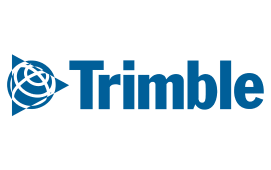Can Flat Rate Pricing Increase Your Profits?
Due to the competitive nature of the service market, EC's must find ways to reduce overhead by eliminating their service cycle time in order to be profitable. This includes but is not limited to billing, payment, and streamlining customer quotes. Due to the fact that most residential and commercial light services are smaller in scale, this raises the risk of the electrical contracting firm losing funds from underestimating the admin process and other details involved, even if the responding technician is adequately paid. Residential and light commercial service work is only successful if the EC has 1) very experienced technicians, 2) a thorough understanding of what will make the work profitable, and 3) procedures and processes in place that maximize the technicians productivity and keep costs to a minimum.
This level of scalability might not be possible for every EC to take on. If this is the case, how can firms improve billing and reduce overhead for residential and lighter commercial service jobs, all while streamlining quotations? One excellent option is a flat-rate pricing system.
How Does Flat-rate Pricing Work?
Electrical service work is normally priced on a T&M (time and material) basis. T&M pricing requires you to track the direct cost of performing the job and adding markup to offset overhead and result in a decent profit. When you opt for flat-rate pricing, the EC is able to make small-scale work more profitable and make the overall service process more efficient.
If this sounds like a scary prospect, understand that flat-rate pricing is really just a form of T&M pricing. Predetermined prices are assigned to predefined services based on a comprehensive analysis of all the activity involved in the service, and this includes all the same costs within a T&M pricing arrangement. The main difference with flat-rate pricing is that the need to develop a detailed quote before the work begins and an invoice afterward is eliminated because the amount the customer owes will have been predetermined. A flat-rate pricing system can be developed rather easily based on historical data of previous work, allowing them to bill at the time the service is provided and collect funds before leaving the site.
Advantages to Flat-rate Pricing
Customer Assurance. Studies show that consumers of all different services and products oftentimes prefer flat-rate pricing, and customers of residential and light commercial electrical work are definitely among this kind of consumer. Flat-rate pricing gives the customer the assurance that comes with knowing how deep the pool is before they jump in. The anxiety that comes from the final cost of the job being unknown until the work is completed is unavoidable with T&M priced services, and this anxiety can affect ECs as well. Knowing the cost has been predetermined before the work begins allows everyone to rest at ease until the job is done.
Save Company Time & Money. Flat-rate prices for performing predetermined work cuts out the need to hire additional service personnel to handle all the admin involved in T&M billing - detailed billing agreements, work tickets, service reports, invoices, etc. Additionally, flat-rate services spare the service manager or the senior service technician from having to make a trip to the customer's location to give a quote that may or may not result in closing the sale. Having you and your staff properly trained in a flat-rate pricing arrangement will help you know the right questions to ask that will provide enough information to provide customers a quote on the spot as soon as they call in. If the customer hears your number and wants to shop around, your unpaid time is kept to a minimum should they decide to go another direction. Should they circle back around want to work with your company, the firm can proceed with scheduling the service on the spot and even request a credit card be uploaded to lock in the service. Billing disputes now become a non-variable because the process and any questions involved are openly discussed before any agreement is made.
Establishing a Flat-rate Pricing System
The first step you'll want to take in instituting an effective flat-rate pricing system is to identify the services that would and would not be included in the scope of your work. Be sure to determine the labor, material, service overhead, equipment, and any additional overhead to be included in the standard cost of your company's labor. After these factors are added up, a decent profit should be added to this standard cost, at which you arrive at the flat-rate price.
Charter Estimating is a professional electrical estimating company that offers long term and short-term electrical estimating solutions for electrical contractors around the nation. Whether you are looking for part-time, full-time, or more than one electrical estimator, we are always here to help you further your company’s goals. Get in touch with us today!

Contact Us
Schedule a Consultation
(*) - Required field
Our Partners




